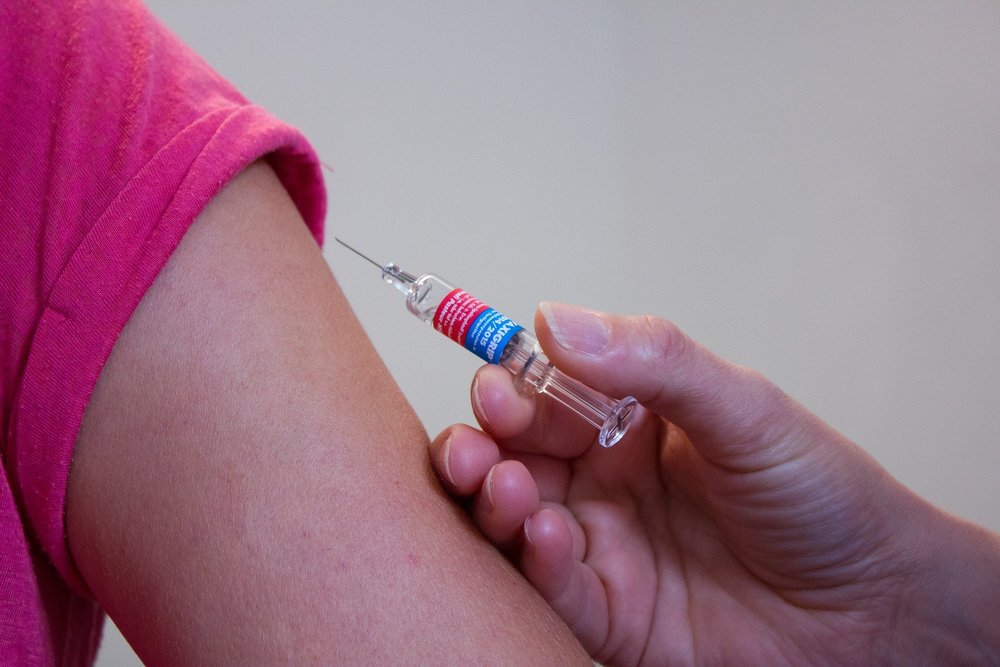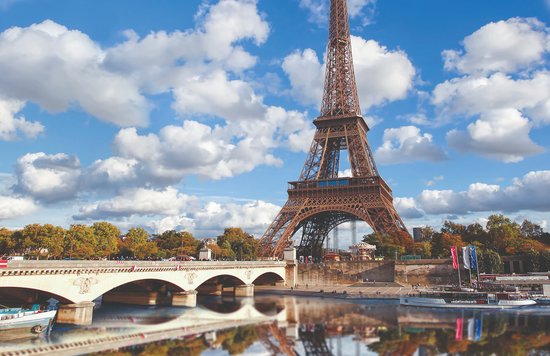IMPORTANT NOTE: Be a responsible traveler! All information on this post is accurate from the time of writing. Rules, regulations, and guidelines are updated frequently and may change without Klook’s prior notice. For your safety, check with the respective destination directly before your travels.
Stay ahead of France travel requirements with this informative travel guide!
Dreaming of Paris? Now’s the time to pack up your bags because as of February 12, fully-vaccinated tourists from green-list countries can now travel to France without a negative test. This awesome news just came in time for the ski season!
But of course, travel nowadays isn’t as cut and dry as it used to be. So we looked closer at the latest France travel restrictions to help you plan ahead. Ready your pens and notes as we answer all your burning questions about France travel requirements.
Do I need a visa to travel to France?
If you’re a passport holder from any of the countries within the Schengen territory, then no, you don’t. However, if you’re from a non-Schengen country, you must secure a visa prior to traveling. Find out what visa type you’ll need and the requirements for your country at the official visa website.
Who can travel to France?
Fully vaccinated individuals over the age of 12 can travel to France, regardless of their country of origin’s color classification. Unvaccinated individuals from ‘green’ countries can still travel to France, however, they must present COVID-19 travel requirements before boarding. If you’re unvaccinated and come from an ‘orange’ country, you must have a compelling reason to travel otherwise you won’t be allowed into France.
What do I need to fly into France?
Fully vaccinated travelers, regardless of country of origin, must have:
- Proof of vaccination
- A signed sworn statement declaring that they are not suffering from any COVID-19 symptoms or have been in contact with any confirmed cases 14 days prior to travel
In order to be recognized as fully vaccinated, the travelers must have:
- 2 doses of one of the 4 EU-approved vaccines (Pfizer, Astra-Zeneca, Moderna or Johnson & Johnson)
- A second dose at least 2 weeks before traveling
- Booster jab if the second dose is more than 9 months ago
Unvaccinated travelers from green countries/territories must have:
- Negative RT PCR test taken no more than 72 hours before departure OR
- Negative antigen test taken within 48 hours before departure
- Signed sworn statement declaring that they are not suffering from any COVID-19 symptoms or have been in contact with any confirmed cases 14 days prior to travel
Unvaccinated travelers from orange countries/territories must have:
- Negative RT PCR test taken no more than 72 hours before departure OR
- Negative antigen test taken within 48 hours before departure
- A signed sworn statement declaring that they are not suffering from any COVID-19 symptoms or have been in contact with any confirmed cases 14 days prior to travel
Important note: Unvaccinated children aged 12-17 can still travel to France, as long as they are accompanied by a fully vaccinated adult.
What countries are included in the ‘green’ and ‘orange’ list?
Green countries/territories:
- All European countries
- Argentina
- Australia
- Bahrain
- Cambodia
- Cape Verde
- Chad
- Colombia
- Côte d’Ivoire
- Cuba
- Ecuador
- Fiji
- Gabon
- Ghana
- Guinea
- Equatorial Guinea
- Guinea Bissau
- Hong Kong
- Japan
- Indonesia
- Honduras
- Kuwait
- Laos
- Mauritius
- Mauritania
- Morocco
- Nepal
- Nicaragua
- New Zealand
- Qatar
- Rwanda
- Samoa
- Saudi Arabia
- Senegal
- South Korea
- Sri Lanka
- Taiwan
- Tanzania
- Togo
- Uganda
- United Arab Emirates
- Vanuatu
- Venezuela
- Vietnam
Orange countries/territories: All countries not included in the green list
Do I need to fill out any forms prior to departure?
All travelers must complete the EU PLF form before boarding to France. And if you’re coming from an orange country, you must fill up the Eos electronic form as well.
Can children below the age of 12 travel to France?
Yes. Children below the age of 12 are exempted from COVID travel requirements. They are not required to present a COVID certificate or a vaccination pass.
What’s a vaccination pass and why do I need it?
The vaccination pass, or pass vaccinal, is necessary for anyone aged over 16 to access entertainment and cultural venues, restaurants, trade fairs and shows, long-distance travel in public transportation, ski resorts, and tourist accommodations.
A vaccination pass can be a digital or paper version of the following:
- Vaccine certificate showing full vaccination and/or booster vaccination
- Certificate of recovery from COVID not less than 11 days to 6 months prior
- Certificate of medical reason/s for not being vaccinated
To keep your vaccination pass active, you must get a booster shot as early as 3 months after the second dose and within a maximum of 4 months. Children aged 12-17 are exempted from this rule since they’re not required to get a booster jab to keep the pass active.
What’s a health pass and how is it different from a vaccination pass?
The health pass, or pass sanitaire, is only applicable to children aged 12-15. Vaccination status and proof of COVID recovery (if any) must be provided, as well as proof of negative not more than 24 hours old to enjoy access to public venues. However, it must be noted that the kids must take an antigen test every 24 hours to keep the pass active.
Do I still need to wear a mask?
Starting February 28, masks won’t be required in places that require the vaccination pass. However, wearing of masks will still be observed indoors, in public transportation, and in enclosed places that do not require the vaccination pass.
Can I travel to France from Russia and vice versa?
As of 27 Feb, France joins the EU in banning Russia from its airspace. There has been no travel notice from the French government but traveling to or from Russia may not be a possibility for the time being.
Now that you know the requirements to get into France, it's high time to create a France travel itinerary. If you're stopping by or staying in Paris anytime soon, you should check out our articles about the best attractions in the City of Lights. From museums to family-friendly activities, we've got you covered!


























